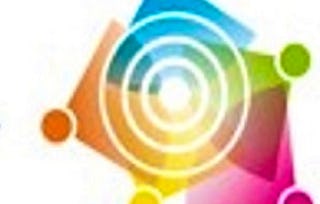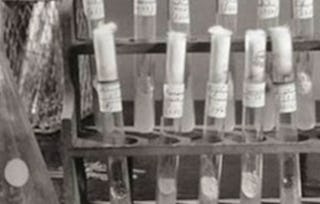Antimicrobial resistance is an increasingly pressing global concern. This course offers unique and comprehensive insights into the challenges posed by AMR, exploring its mechanisms, implications for public health and laboratory methods as well as tools for identification.

Antimicrobial resistance - theory and methods

Antimicrobial resistance - theory and methods

Instructor: Rene S. Hendriksen
Access provided by SGCSRC
75,282 already enrolled
2,572 reviews
Recommended experience
What you'll learn
Prepare for a career with our Intermediate level course in understanding AMR.
Apply new skills to projects and portfolio.
Learn and develop in demand skills and relevant knowledge for identification of AMR and laboratory methods.
Learn the most up-to-date theoretical & practical skills in antimicrobial resistance identification and testing.
Skills you'll gain
Details to know

Add to your LinkedIn profile
7 assignments
See how employees at top companies are mastering in-demand skills

There are 8 modules in this course
This module is a welcome to the course where you can find information on the course structure, the content that you will be introduced to in the next modules, the grading, as well as an introduction to the instructors and the teaching material.
What's included
1 video1 reading
In this module you will learn about antibiotics/ antimicrobials and you will get to know more about what they are, where they come from, what are the major groups and how can we classify them, as well as how do they have an effect and how do they act on the bacterial cells.
What's included
2 videos1 assignment
This module contains information about antimicrobials and the development of resistance in bacteria including causes for resistance and their mechanisms, as well as an insight in how resistance disseminates and how it can be selected.
What's included
4 videos1 assignment
This module deals with antimicrobial susceptibility testing in the laboratory: its importance and use, descriptions of the methods and their applications and detailed descriptions of the procedures applied for the main methods. Additionally, this module gives practical insight on how to interpret antimicrobial susceptibility results.
What's included
9 videos2 assignments
As alternative to the phenotypical methods, the researcher might decide to use genotypically based methods to identify genes of interest. In the lectures of this module we present the ResFinder tool which may be used to find resistance mechanisms ( genes and in the future versions also specific point mutations) from Whole genome sequences of bacteria of interest. The second lecture is a demonstration of the MyDBFinder which can be used to identify genes of interest defined by the user from Whole genome sequence data. DISCLAIMER: There has been a change since the ResFinder video lecture was prepared – and there is now only one ResFinder web-tool available: http://genepi.food.dtu.dk/resfinder . This version of the ResFinder automatically includes both the ResFinder and PointFinder databases .
What's included
2 videos1 assignment
This module is dedicated to Quality management and Quality assurance (QA)/ Quality control (QC) procedures and use of QC strains to assure the quality of results of antimicrobial susceptibility testing: importance, elements and principles.
What's included
2 videos1 assignment
The module provides an in-depth understanding of critical important antimicrobials (CIA). You will explore the importance of CIAs, the mechanism of action and the challenges associated.
What's included
5 videos1 assignment
In this module, you will explore AMR integrated surveillance systems at local, regional, and global levels, emphasizing the One Health approach. Specific discussions will include national and regional surveillance initiatives like DANMAP, as well as presentations on FAO InFARM, WHO GLASS, and WHO MIA (CIA).
What's included
6 videos
Instructor

Offered by
Why people choose Coursera for their career

Felipe M.

Jennifer J.

Larry W.

Chaitanya A.
Learner reviews
- 5 stars
74.92%
- 4 stars
20.91%
- 3 stars
3.61%
- 2 stars
0.27%
- 1 star
0.27%
Showing 3 of 2572
Reviewed on Feb 16, 2021
An informative course especially for identifying drug-resistant strains such as MRSA, ESBLs, et. Also the criteria for avoiding false positives or negatives have been emphasized very clearly.
Reviewed on Sep 26, 2020
Though it was an intermediate course, I found it easy enough to keep up with the microbiological terminology used and the themes being explained. It was a good and informative course.
Reviewed on Dec 22, 2020
This course increase my knowledge about antimicrobial resistance. It will help me in the future. I am very thankful to all the presenter for describing the material easily.
Explore more from Health

University of Amsterdam

Lecturio

Stanford University

University of Leeds

